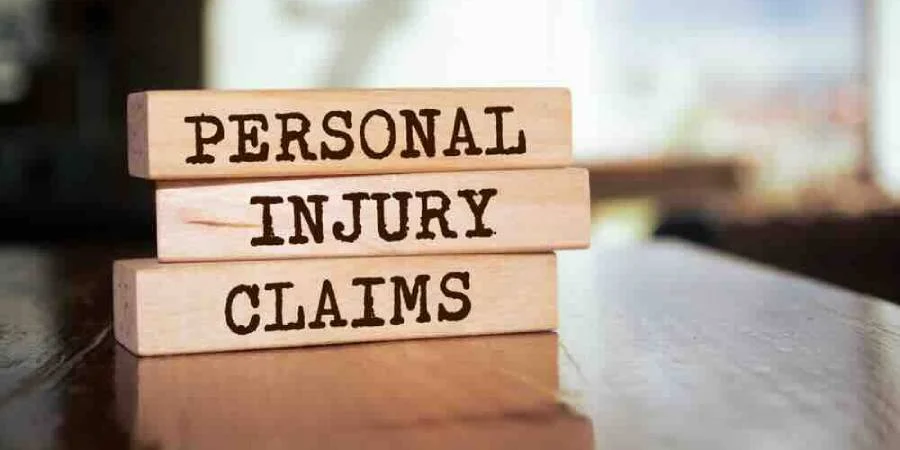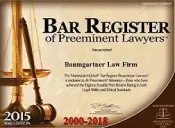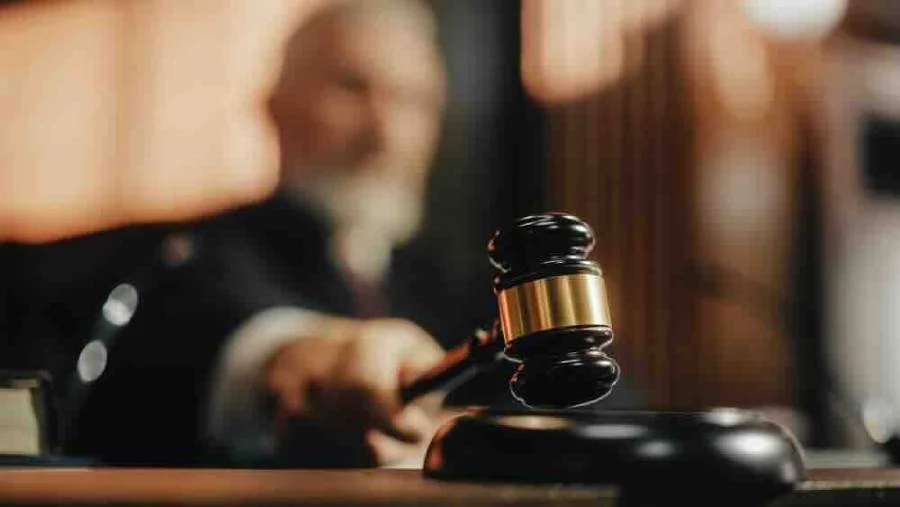Causation in Personal Injury Claims
What is Causation in Personal Injury Cases?

Causation is the essential link between the defendant’s actions and the plaintiff’s injury in personal injury law. Establishing causation in personal injury claims means proving that the defendant’s negligence or wrongful conduct directly led to the plaintiff’s harm. Without causation, a plaintiff cannot hold the defendant legally accountable, no matter how severe the injury is.
Causation is foundational to proving liability and securing compensation, and courts require a clear demonstration that the defendant’s actions directly caused the harm. The concept of causation is broken down into two critical components: actual cause and proximate cause.






Actual Cause- Establishing the Direct Link to Injury
The actual cause, also known as “cause in fact,” is the initial element of causation, identifying whether the defendant’s actions set the events leading to the injury in motion. Often determined through the “but-for” test, actual cause asks whether the injury would have occurred but for the defendant’s actions. In simple terms, if the injury would not have happened without the defendant’s specific actions, actual cause is established. For example, in a car accident where a driver ran a red light and caused a collision, the actual cause would require demonstrating that the collision would not have occurred if the driver had followed traffic laws. Examples of proximate cause depend on the type of injury case involved.
Proximate Cause- Defining the Scope of Liability
While the actual cause provides a direct link between the defendant’s conduct and the injury, the proximate cause addresses whether the injury was a foreseeable result of the defendant’s actions. Proximate cause restricts liability to harms that could reasonably be foreseen from the negligent behavior. Courts often assess proximate cause by examining if a “reasonable person” could foresee the injury resulting from the defendant’s conduct.
For instance, in a big truck accident case, if the trucking company did not maintain the brakes as required, but the truck accident had nothing to do with bad brakes, the failure to maintain the brakes was not a proximate cause of the collision. Suppose the 18-wheeler accident was a rear-end crash, and had the brakes been working properly, the crash may not have happened or would not have been as severe. The failure to maintain the brakes could be a cause of the wreck.
Burden of Proof
The burden of proving causation lies with the plaintiff in personal injury lawsuits. To establish causation, plaintiffs must present relevant evidence and expert testimony. This evidence may include medical records, eyewitness accounts, accident reports, and documentation of physical injuries. Plaintiffs must create a clear, logical chain that ties the defendant’s conduct to their injury without interruptions. Additionally, where causation is complex, such as in product liability cases, expert testimony from qualified engineers or accident reconstruction professionals is often necessary to clarify how the defendant’s actions directly caused the injury.
The Role of Medical Experts in Proving Causation
Medical experts are instrumental in linking specific injuries to the defendant’s actions, especially when the cause of injury is not immediately obvious. In cases involving physical trauma, chronic conditions, or latent injuries, medical professionals evaluate the plaintiff’s health condition and provide detailed reports explaining the causal link between the injury and the defendant’s conduct.

Medical experts may analyze symptoms, treatment records, diagnostic findings, and potential long-term effects of the injury to help courts understand the full extent of harm and its direct link to the incident. Their testimony is critical in complex injury claims, such as those involving pre-existing conditions or injuries that are not readily apparent.
Challenges in Proving Causation in Personal Injury Cases
Proving causation can be challenging, particularly in cases where multiple factors contribute to the injury. For example, pinpointing one party’s liability in a multi-vehicle accident may require extensive investigation and expert analysis.

Similarly, suppose a plaintiff has pre-existing conditions aggravated by the incident. In that case, it can be difficult to establish how much of their condition is attributable to the defendant’s conduct versus underlying health issues. Courts may require medical experts to differentiate between pre-existing and accident-related injuries to determine the specific impact of the defendant’s actions on the plaintiff’s health.
Proving the actual cause of a fatal accident can often be difficult because the decedent can’t tell the deceased’s side of the story.
Comparative Negligence and Its Impact on Causation in Texas
In comparative negligence jurisdictions like Texas, courts assess each party’s contribution to the accident and adjust compensation based on their degree of fault. If a plaintiff’s actions contributed to their injury, the court may proportionate the awarded damages. For instance, if a pedestrian ignored a crosswalk signal and was hit by a speeding vehicle, the driver and pedestrian may share liability. Establishing causation in these cases involves determining the percentage of fault attributable to each party and adjusting compensation accordingly. Comparative negligence emphasizes the need to thoroughly analyze all contributing factors in cases where both parties may have played a role.

Common Types of Evidence Used to Prove Causation
- Medical Records- Detailed documentation of the plaintiff's injuries, treatments, and recovery progress.
- Accident Reports- Official reports from police, emergency responders, or workplace safety authorities that provide an unbiased account of the incident.
- Eyewitness Testimonies- Statements from individuals who witnessed the incident, offering insight into the sequence of events and the defendant's conduct.
- Video Footage - In premises liability cases, video evidence may reveal the conditions that led to the injury.
- Expert Testimony- Experts provide insight into the injury's cause and effects in cases requiring specialized knowledge supporting causation arguments.
The Significance of Proving Causation in Securing Compensation
Proving causation is fundamental to recovering compensation for damages in a personal injury claim. Once causation is established, plaintiffs may seek compensation for medical expenses, lost wages, pain and suffering, emotional distress, and other damages related to their injury. However, plaintiffs risk being denied compensation without clear causation, regardless of the injury’s severity. As such, causation remains a cornerstone of any successful personal injury case, ensuring that victims are fairly compensated and defendants are held accountable for their actions.
Legal Strategies to Strengthen Causation in Personal Injury Claims
Attorneys employ a variety of strategies to solidify causation in personal injury claims, including:
- Detailed Documentation- Compiling a thorough record of all events leading up to the injury, including incident reports, medical records, and photographs.
- Eyewitnesses- Gathering statements from bystanders, first responders, and other individuals who can corroborate the plaintiff's account.
- Expert Witness Collaboration- Consulting with medical, engineering, or accident reconstruction experts to explain complex causation issues and clarify the defendant's liability.
- Logical Arguments- Building a clear, logical narrative that ties the defendant's actions to the injury, presenting the argument in a structured manner to highlight causation.
An Experienced Personal Injury Attorney Can Help You Prove Causation
Showing causation is a critical component of a personal injury claim in Texas. Getting help from an experienced injury attorney can help you establish causation and get the compensation you deserve for your injuries.
Our law firm provides free, no-obligation consultations to help you understand your legal options. Learning the strengths and weaknesses of your case can only help you. Contact Baumgartner Law Firm for your free consultation on an injury claim in Houston.
Baumgartner Law Firm Practice Pages:
For a FREE Consultation Contact Us Today
"*" indicates required fields
Related Links
Our Experienced Houston Personal Injury Lawyer Can Help!
Case Results
$5,750,000.00 Truck Accident - Wrongful Death
$6,000,000.00 Daycare Injury
Confidential Settlement Commercial Vehicle Crash - Wrongful Death
Confidential Settlement Burn Injury
Confidential Settlement 18-Wheeler Accident - Wrongful Death
Legal Services
Contact the experienced Houston personal injury lawyerr
at Baumgartner Law Firm for Help!
Contact the experienced Houston personal injury claim.
OR
Fill out an online consultation request for a FREE consultation.
About Our Law Firm in Houston
Houston personal injury lawyer Greg Baumgartner heads the Baumgartner Law Firm.
Our firm was established in 1985 and has helped thousands of injury victims get maximum compensation for their cases. If you have been injured in an accident in Houston, TX, contact us for a free, no-obligation consultation. (281) 587-1111.
Since 1985, Baumgartner Law Firm has limited our law practice to serious personal injury cases. Our legal team has won maximum compensation for thousands of accident victims and recovered millions of dollars for real people like you.
Helping these areas around Houston
"*" indicates required fields

